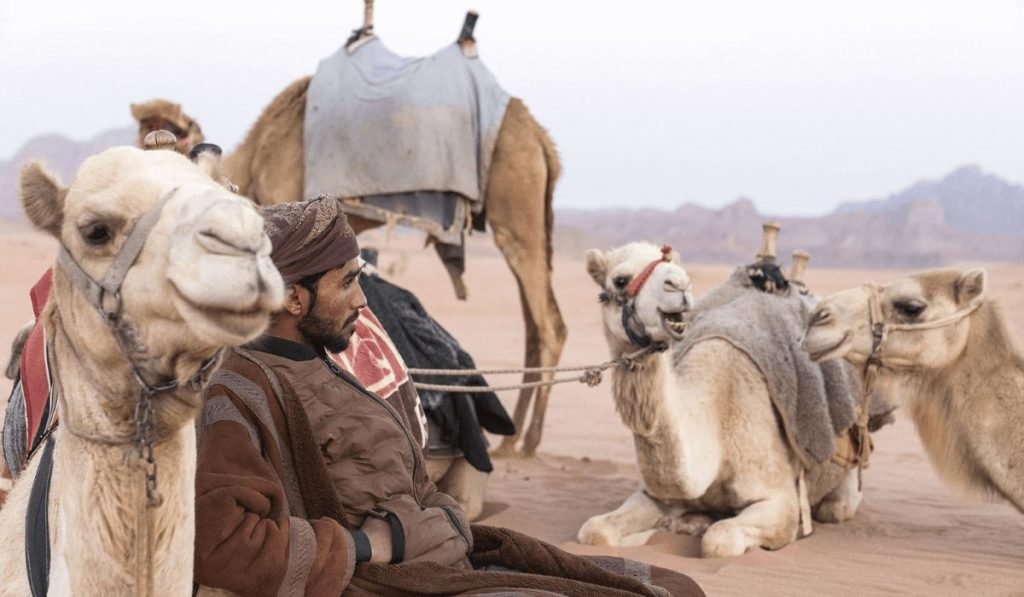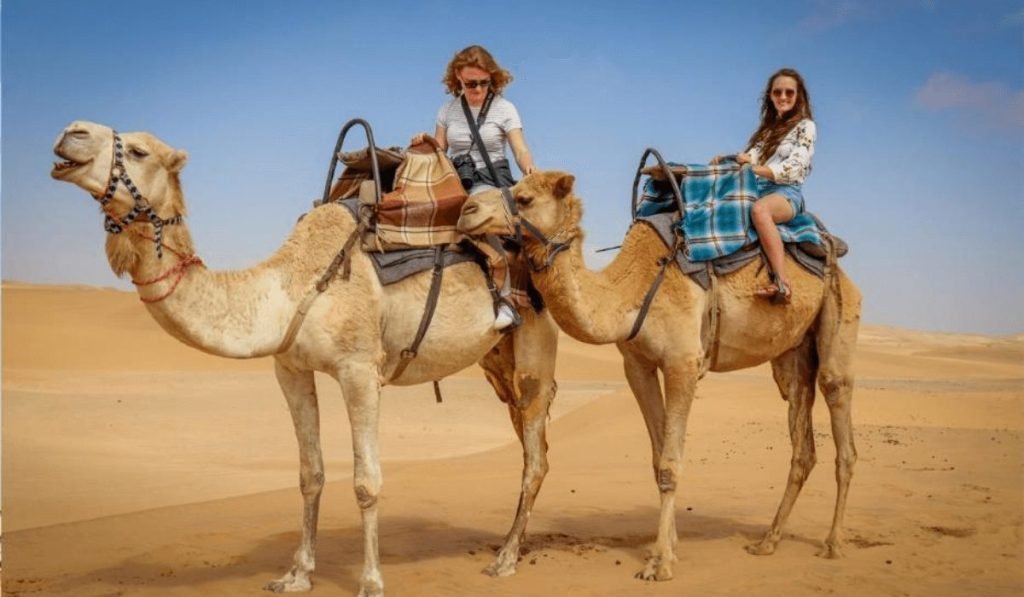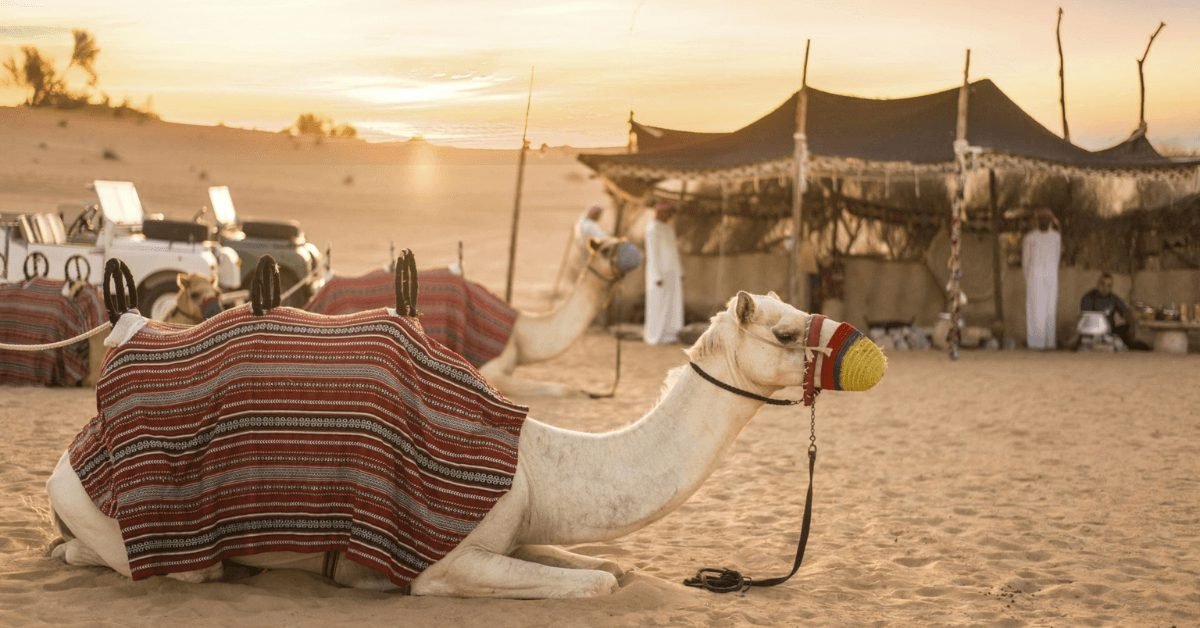Dubai has emerged as a global tourist destination, captivating travelers with its modern marvels and luxurious experiences. However, beyond the glitz and glamour of the cityscape, lies an ancient culture deeply rooted in the desert. Desert safaris have gained immense popularity, offering visitors a unique and unforgettable experience. At the heart of these desert safaris is the captivating Bedouin culture, which plays a central role in shaping the authenticity and charm of the desert safari experience in Dubai.
Dubai is renowned for its cosmopolitan lifestyle and futuristic architecture, but it is the desert that holds the secrets of its cultural heritage. Desert safaris offer a glimpse into the rich traditions and timeless allure of the Bedouin way of life. From Bedouin hospitality and falconry to camel riding and traditional cuisine, the desert safari experience in Dubai immerses visitors in the captivating tapestry of Bedouin culture.
The Bedouin: Nomadic Tribes of the Desert

The Bedouin tribes of Dubai have a rich and storied history, tracing their roots back to the Arabian Peninsula. Nomadic by nature, they have thrived in the harsh desert environment for centuries. These resilient tribes have cultivated a deep connection with the land, relying on their resourcefulness and survival skills to navigate the challenging desert terrain. Explore the fascinating history, traditions, and customs of the Bedouin tribes, showcasing their resilience and deep connection with the desert.
Bedouin Hospitality: A Symbol of Generosity
Hospitality holds great significance in Bedouin culture. Bedouins are renowned for their warm and generous hospitality, embracing guests as part of their extended family. From the moment visitors arrive at a desert safari, they are greeted with traditional Bedouin rituals that epitomize warmth and hospitality. Discover how Bedouins welcome guests with open arms, offering traditional Arabic coffee and dates as symbols of hospitality. The concept of Majlis, where guests gather to share stories and experiences, further exemplifies the inclusive and welcoming nature of Bedouin culture.
The Art of Falconry: A Bedouin Tradition

Falconry, an ancient sport deeply ingrained in Bedouin culture, holds a significant place in the desert safari experience. Bedouins have a profound historical connection with falcons, using them for hunting and companionship. Falcons are revered for their grace and speed, and witnessing a falconry display during a desert safari is a mesmerizing experience. Explore the historical ties between Bedouins and falconry, and learn about the techniques and training methods used in this ancient sport. The art of falconry brings a touch of tradition and elegance to the desert safari, highlighting the bond between humans and nature.
Camel Riding: A Journey Through Time

Camels, known as the “ships of the desert,” have long been an integral part of Bedouin culture, serving as reliable companions and vital modes of transportation. Camel riding during a desert safari offers visitors a unique opportunity to experience the rhythm of the desert and connect with the Bedouin way of life. Traverse the sandy dunes atop these gentle creatures and immerse yourself in the tranquility of the desert landscape. Learn about the historical importance of camels to the Bedouin way of life and gain a deeper understanding of their significance as symbols of endurance and resilience.
Traditional Bedouin Cuisine: A Gastronomic Delight
Indulge in the culinary treasures of Bedouin cuisine, which beautifully combines simplicity and flavor. Bedouin food reflects the resourcefulness of a nomadic lifestyle, incorporating local ingredients and traditional cooking techniques. The Bedouins’ love for hospitality is evident in the generous sharing of meals, transforming dining into a cultural celebration. Discover the aromatic spices, tender meats, and hearty bread that form the core of traditional Bedouin dishes. From Mansaf, a signature Bedouin dish, to the flavorful Arabic coffee, Bedouin cuisine tantalizes the taste buds and provides a glimpse into the rich culinary heritage of the desert.
The Art of Henna: A Symbol of Beauty
Step into the world of henna artistry, a cherished tradition in Bedouin culture. Henna holds deep cultural significance as a symbol of beauty, celebration, and protection. Bedouin women intricately adorn their hands and feet with henna designs, each carrying its own meaning and symbolism. Experience the joy of getting henna applied during a desert safari, embracing this ancient art form that has transcended generations. Discover the various patterns and motifs that reflect the Bedouin traditions and immerse yourself in the artistic beauty of henna.
Traditional Music and Dance: A Cultural Celebration
Music and dance form the vibrant tapestry of Bedouin celebrations. Bedouin music reflects the simplicity and spirituality of their nomadic lifestyle, using traditional instruments like the oud and tabla. During a desert safari, visitors are treated to the melodic tunes and rhythmic movements of traditional Bedouin dances, creating an electric atmosphere under the starry desert sky. Witness the captivating performances by talented artists, who bring to life the essence of Bedouin culture through their music and dance. Let the enchanting melodies and lively rhythms transport you to a world steeped in tradition and celebration.
Traditional Dress: Bedouin Attire
Clothing holds deep cultural significance, and Bedouin attire tells the story of their nomadic lifestyle and cultural heritage. Traditional Bedouin garments, such as the flowing robes known as thobes for men and the elegant abayas for women, not only offer practicality in the desert climate but also reflect the cultural identity of the Bedouins. Explore the intricate details, colors, and styles of Bedouin attire, each carrying its own symbolism and historical significance. Learn how visitors can respectfully engage with Bedouin attire during a desert safari, appreciating the cultural heritage it represents.
Bedouin Crafts: Handmade Treasures
Uncover the craftsmanship of the Bedouins, renowned for their intricate weavings, pottery, and jewelry. Bedouin crafts reflect their deep connection with the desert environment and their resourceful nature. From handwoven rugs and baskets to pottery adorned with traditional motifs, these handmade treasures encapsulate the spirit of Bedouin artistry. Discover the techniques passed down through generations and the cultural symbolism behind each piece. During a desert safari, visitors have the opportunity to acquire authentic Bedouin crafts, supporting the preservation of their artistic heritage and sustaining the livelihoods of local artisans.
Sustainable Tourism and Bedouin Culture Preservation
As Dubai continues to thrive as a tourist destination, there is a growing need to prioritize sustainable practices and the preservation of Bedouin culture. Responsible tourism plays a crucial role in safeguarding the authenticity and integrity of the desert safari experience. Explore the impact of tourism on Bedouin traditions and the environment, and highlight initiatives and organizations dedicated to preserving the authenticity of the desert safari experience. Learn how responsible travelers can contribute to the long-term sustainability of Bedouin culture, from supporting local communities to engaging in environmentally friendly practices.
Conclusion
Recap the article’s key points, emphasizing the central role of Bedouin culture in creating an immersive and unforgettable desert safari experience in Dubai. Bedouin traditions and customs bring a sense of authenticity and charm to the desert safaris, allowing visitors to connect with a rich cultural heritage that has withstood the test of time. Encourage readers to embrace the beauty and authenticity of Bedouin traditions during their visit, fostering a deeper understanding and appreciation for this vibrant culture that lies at the heart of the desert safari experience.

